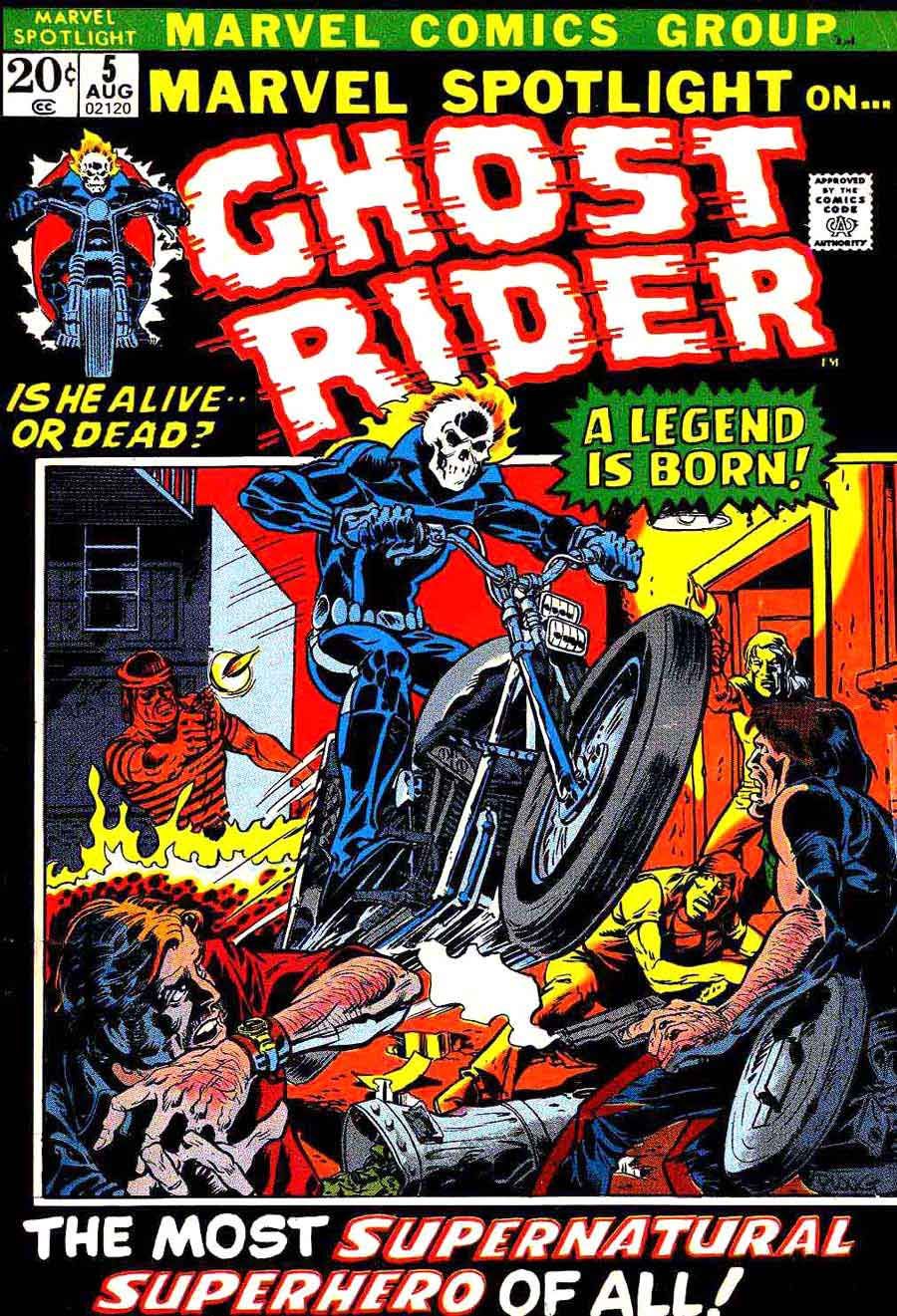Marvel on Monday urged the Second Circuit to deny Gary Friedrich's attempt to revive his copyright claims to Ghost Rider, reiterating that the writer no only signed away his rights to the character three decades earlier but waited too long to file his lawsuit.
Friedrich sued Marvel, Columbia Pictures and Hasbro, among others, shortly after the 2007 release of the first Ghost Rider movie, insisting he had regained the copyright to the fiery Spirit of Vengeance some six years earlier. He argued he created Johnny Blaze/Ghost Rider in 1968 and later agreed to publish the character through Magazine Management, which eventually became Marvel Entertainment. Under the agreement, the publisher held the copyright to the character’s origin story in 1972′s Marvel Spotlight #5, and to subsequent Ghost Rider works. However, Friedrich alleged the company never registered the work with the U.S. Copyright Office, permitting the rights to revert to him in 2001.
In December 2011, a federal judge rejected Friedrich’s lawsuit, finding the writer gave up ownership to the property when he endorsed checks that contained language relinquishing rights to Marvel’s predecessors. The judge said Friedrich signed over all claims to the character in 1971 and again in 1978 in exchange for the possibility of more freelance work for the publisher. (Two months later, Marvel agreed to abandon its 2010 countersuit accusing Friedrich of trademark infringement if the writer would pay $17,000 in damages and stop selling unauthorized Ghost Rider merchandise.)
The writer appealed in July, arguing the court erred in ruling that the language on the back of Marvel paychecks in the early 1970s and in the 1978 contract were sufficient to constitute transfer of copyright. However, his attorney also reasserts the claim that the agreement was entered into under duress, with Friedrich told “if I wanted to continue to work for Marvel that I would have to sign it.”
But in a brief filed Monday, and first reported by Law360, Marvel asserts that Friedrich's "untimely" claim is not only barred by the statute of limitations -- if the writer did reclaim copyright in 2001, he should've filed his lawsuit no later than 2004 -- but more importantly by the 1978 agreement granting the publisher “forever” all rights to a work and agreeing “not to contest Marvel’s exclusive, complete and unrestricted ownership.”
"From 1972 until April 2004 — throughout the work’s initial copyright term and well into its renewal term — appellant Friedrich alternately sat in silent acquiescence and affirmatively confirmed that copyright rights in the work belonged to Marvel alone," the brief states. "In fact, in 1978 he executed an agreement confirming that any works he had done for Marvel were works made for hire — meaning Marvel owned the copyrights in them—and alternatively, expressly quitclaiming to Marvel 'forever all rights of any kind' in such works. When, in April 2004, Friedrich belatedly raised the issue of the ownership of copyright rights in the Ghost Rider character, Marvel’s prompt and unequivocal response was that he had none. He then fell silent for three more years while Marvel continued to exploit the work in film, comic books, merchandise, toys and video games. It was not until after the release of a Ghost Rider motion picture in 2007 following years of widespread publicity that Friedrich brought this lawsuit."
Friedrich's lawyer Charles Kramer plans to file a reply brief.


